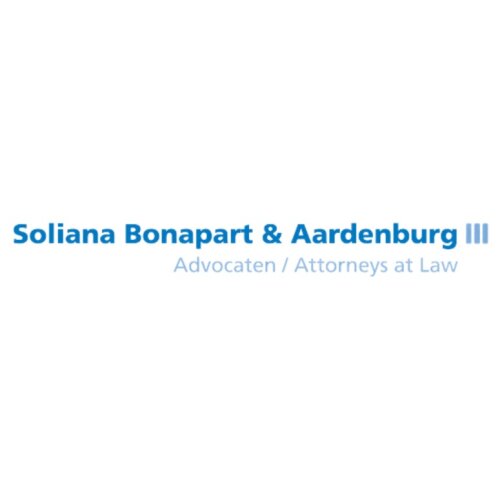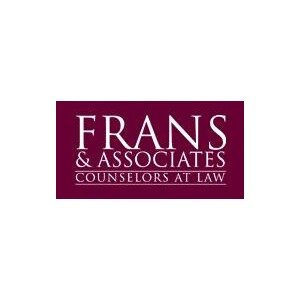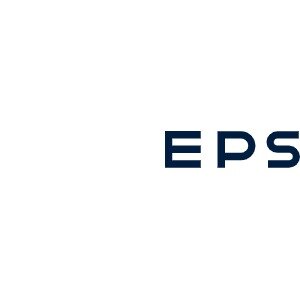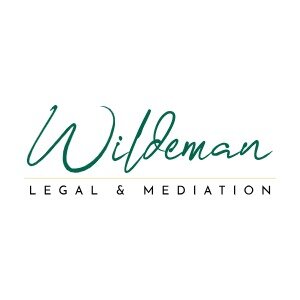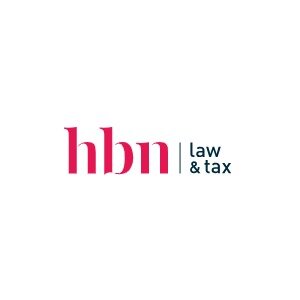Best Conveyancing Lawyers in Curaçao
Share your needs with us, get contacted by law firms.
Free. Takes 2 min.
Free Guide to Hiring a Real Estate Lawyer
Or refine your search by selecting a city:
List of the best lawyers in Curaçao
About Conveyancing Law in Curaçao
Conveyancing is the legal process of transferring ownership of real estate from one party to another. In Curaçao, this process is governed by a combination of local civil law, property regulations, and longstanding notarial traditions rooted in Dutch law. Every property transaction requires careful adherence to legal procedures to ensure the interests of both buyers and sellers are protected.
Unlike many countries where attorneys directly handle conveyancing, in Curaçao, notarissen (civil law notaries) play a central role. They are impartial public officials who draft and register deeds of transfer, mortgages, and related documents. Their involvement guarantees the legality of transactions, proper registration in the public registers, and the safeguarding of parties from fraud and unforeseen debts.
Why You May Need a Lawyer
While the notary oversees and formalizes property transfers, there are situations where engaging a lawyer alongside the notary is highly advisable. Common scenarios include:
- Reviewing complicated sales contracts or preliminary agreements
- Assisting with disputes over property boundaries or rights of way
- Protecting your interests in cases where transactions involve inherited properties, business assets, or co-ownership
- Negotiating terms, timelines, or special conditions not covered in standard deeds
- Providing advice for foreign buyers unfamiliar with Curaçao’s property laws or restrictions for non-residents
- Resolving issues such as outstanding debts on the property, unresolved liens, or pending permits
- Ensuring compliance with zoning and building regulations, especially for commercial transactions or land development
Local Laws Overview
Conveyancing in Curaçao is primarily governed by the Civil Code of the Netherlands Antilles (as applied to Curaçao), local ordinances, and specialized property regulations. Important legal points include:
- Notarial deeds are mandatory for all real estate transfers. The transaction is not legally effective until the deed is signed by a civil law notary and registered at the Land Registry (Kadaster).
- Ownership and any burdens (such as mortgages or easements) must be registered in the public registers for transparency and legal effect.
- Buyers should be aware of “grondrente” (leasehold) situations, where land is owned by the government but leased long-term to private parties. This is a common structure in Curaçao.
- The transfer tax (overdrachtsbelasting) is usually paid by the buyer and is typically 4 percent of the property price, with certain exemptions or reductions possible under specific conditions.
- Foreign nationals can generally purchase property in Curaçao but may face additional due diligence and requirements for financing or inheritance.
- All debts and encumbrances attached to the property should be cleared before registration to avoid unexpected liabilities.
Frequently Asked Questions
What is the role of a civil law notary in conveyancing in Curaçao?
The civil law notary is responsible for drafting and executing the deed of transfer, ensuring both parties have fulfilled their obligations, performing required checks, and registering the transfer in the Land Registry.
Can foreigners buy property in Curaçao?
Yes, foreigners are generally allowed to purchase property in Curaçao. However, they may need to comply with additional formalities or provide proof of funds and identification.
Do I need a lawyer if I already have a notary?
While the notary ensures legal compliance, a lawyer can offer personalized legal advice, negotiate on your behalf, address complex legal issues, and review contracts to protect your interests.
What fees are involved in purchasing property?
Fees typically include notary fees, transfer tax (about 4 percent), land registry charges, and potentially legal fees if you engage a lawyer. Additional costs can include valuation, surveys, or mortgage arrangement fees.
How long does the conveyancing process usually take?
The process usually takes 4 to 8 weeks, depending on the complexity of the transaction, the speed of due diligence, and the readiness of both parties.
How do I verify that a property has no debts or encumbrances?
The notary will request an extract from the Land Registry to confirm the property's legal status and ensure there are no outstanding mortgages, liens, or other restrictions.
What is 'grondrente' and does it affect my rights as a buyer?
Grondrente is a leasehold system where the government owns the land and grants long-term leasehold rights to private individuals. Buyers should carefully review the leasehold terms with their lawyer or notary.
Are there any restrictions on selling property?
Generally, there are no restrictions for private land sales. However, properties held under government leasehold may need government approval for transfer or be subject to specific conditions.
What happens if there is a dispute after purchase?
If a dispute arises regarding the property after purchase, it can be litigated in local courts. Early legal advice is advisable to resolve issues efficiently and avoid costly litigation.
How can I make sure I have clear title to the property?
Engage a reputable civil law notary and consider hiring a lawyer to conduct an independent legal review. They will check title history, potential encumbrances, and ensure proper due diligence has been conducted.
Additional Resources
Several organizations and authorities can provide assistance or additional information for conveyancing-related matters in Curaçao:
- Kadaster Curaçao (Land Registry) - Maintains all property records and registrations
- The Association of Civil Law Notaries - Contact information for licensed notaries
- Ministry of Spatial Development and Infrastructure - Responsible for planning, zoning, and building permits
- Local Bar Association - Assists in finding qualified lawyers specializing in property law
- Consulate or Embassy - For foreign buyers, their consular office can provide general guidance on property purchases abroad
Next Steps
If you are considering a property transaction in Curaçao, here are recommended steps:
- Consult a qualified civil law notary at the outset for preliminary legal advice and title search
- Consider engaging an experienced lawyer, especially for complex, high-value, or cross-border transactions
- Review all documentation carefully before signing any preliminary contracts or offers
- Ensure you understand all associated costs, taxes, and your obligations as either a buyer or seller
- Request all relevant permits, zoning information, and land registry extracts as part of your due diligence
- Do not hesitate to seek professional legal advice if you have any doubts or encounter complications during the process
Seeking early legal assistance can help prevent costly mistakes and ensure a smooth and secure property transaction in Curaçao.
Lawzana helps you find the best lawyers and law firms in Curaçao through a curated and pre-screened list of qualified legal professionals. Our platform offers rankings and detailed profiles of attorneys and law firms, allowing you to compare based on practice areas, including Conveyancing, experience, and client feedback.
Each profile includes a description of the firm's areas of practice, client reviews, team members and partners, year of establishment, spoken languages, office locations, contact information, social media presence, and any published articles or resources. Most firms on our platform speak English and are experienced in both local and international legal matters.
Get a quote from top-rated law firms in Curaçao — quickly, securely, and without unnecessary hassle.
Disclaimer:
The information provided on this page is for general informational purposes only and does not constitute legal advice. While we strive to ensure the accuracy and relevance of the content, legal information may change over time, and interpretations of the law can vary. You should always consult with a qualified legal professional for advice specific to your situation.
We disclaim all liability for actions taken or not taken based on the content of this page. If you believe any information is incorrect or outdated, please contact us, and we will review and update it where appropriate.
Browse conveyancing law firms by city in Curaçao
Refine your search by selecting a city.



